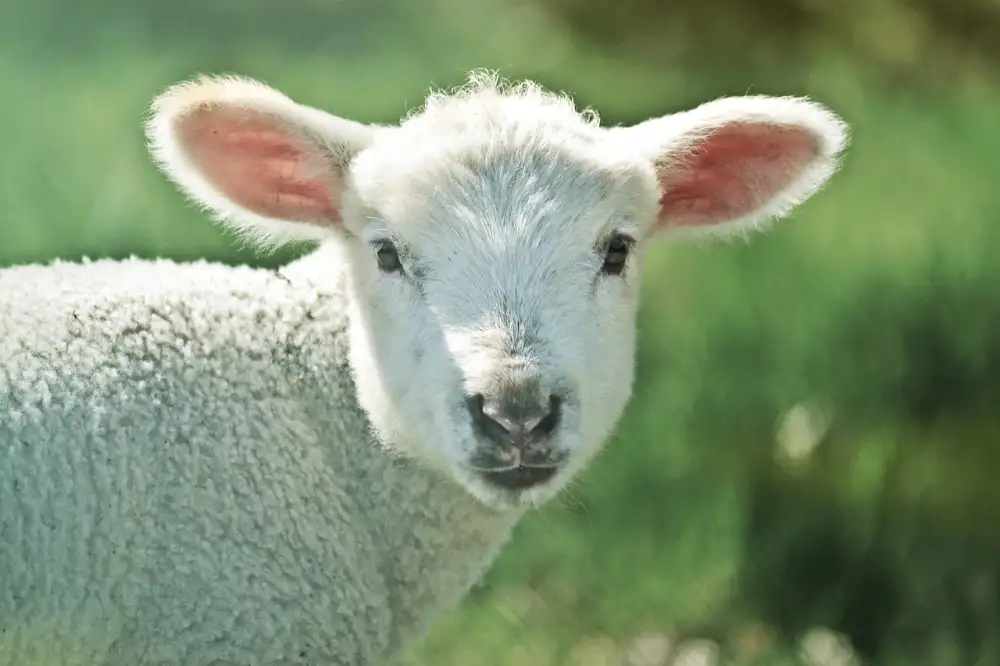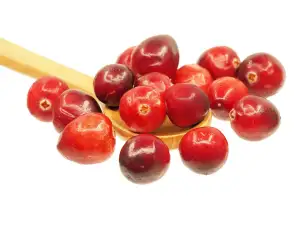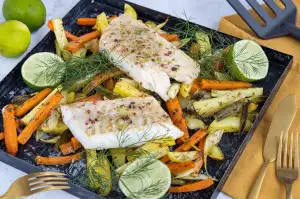Discover the Delectable Delights of Kosher for Passover: Unveiling the Perfect Foods for a Memorable Feast

- Understanding Passover and its significance in Jewish culture
- Overview of Jewish dietary laws during Passover
- The restrictions on leavened products during Passover
- Exploring permissible foods for Passover
- Traditional Passover dishes and their significance
- Tips for preparing a kosher for Passover meal
- Exploring modern twists on traditional Passover recipes
- Where to find kosher for Passover ingredients
Kosher for Passover is a unique culinary experience that celebrates the rich traditions of Jewish culture. During this time, Jewish families gather to commemorate the liberation of their ancestors from slavery in Egypt. The observance of Passover involves strict dietary laws, which guide the types of foods that can be consumed during this sacred period. In this article, we will delve into the world of kosher for Passover and discover the delectable delights that make this feast so special. Get ready to embark on a flavorful journey filled with traditional dishes and modern twists that will leave your taste buds craving for more.
Understanding Passover and its significance in Jewish culture
Passover, also known as Pesach, is one of the most important festivals in Jewish culture. It commemorates the liberation of the Israelites from slavery in ancient Egypt. The story goes that Moses led the Israelites out of Egypt, and during their journey, they didn't have time to let their bread rise. As a result, they ate unleavened bread called matzah. Passover is a time for Jews to reflect on their ancestors' journey and celebrate freedom. It is a time for family gatherings, storytelling, and feasting on traditional foods that have been passed down through generations.
Overview of Jewish dietary laws during Passover
During the Passover holiday, Jewish dietary laws become even more stringent. These laws, known as Kashrut, dictate what foods are permissible to eat. The main restriction during Passover is the prohibition of chametz, which refers to any food product that contains leavened grains such as wheat, barley, rye, oats, and spelt. This includes bread, pasta, cakes, cookies, and most cereals. Instead, Jews are encouraged to consume matzah, an unleavened bread made from flour and water. Additionally, certain legumes and grains such as rice and corn are also not allowed during this time. The purpose of these restrictions is to commemorate the haste in which the Israelites left Egypt and to symbolize their reliance on God's provision during their journey in the desert. By adhering to these dietary laws during Passover, Jews can fully immerse themselves in the spiritual significance of the holiday while enjoying a variety of delicious kosher for Passover foods.
The restrictions on leavened products during Passover
During Passover, there are strict restrictions on consuming leavened products. This is because the Jewish tradition commemorates the Israelites' hasty departure from Egypt, where they did not have time to let their bread rise. As a result, any food made with wheat, barley, rye, oats, or spelt that has been allowed to ferment and rise is prohibited during this time. This includes breads, cakes, pastries, and even certain alcoholic beverages. Instead, unleavened bread known as matzah becomes the staple food of Passover. The absence of leavened products symbolizes humility and reminds Jews of their ancestors' journey to freedom.
Exploring permissible foods for Passover
During Passover, there are specific guidelines regarding the types of foods that are permissible to consume. These guidelines stem from the Jewish dietary laws known as Kashrut. The main restriction during Passover is the prohibition of chametz, which refers to any leavened products made from wheat, barley, rye, oats, or spelt. This includes bread, pasta, cakes, and cookies.
Instead of these leavened products, Jews are encouraged to consume matzah, which is an unleavened bread made from flour and water. Matzah symbolizes the haste in which the Israelites left Egypt and is a key component of the Passover Seder meal.
In addition to matzah, there are various other permissible foods for Passover. These include fruits, vegetables, eggs, fish (with scales), meat (from kosher animals), poultry (from kosher birds), and certain dairy products. However, it's important to note that some individuals may have additional dietary restrictions based on their personal observance or customs.
During Passover meals, it is common to see dishes such as gefilte fish (ground fish patties), brisket (slow-cooked beef), roasted chicken with potatoes and carrots, matzo ball soup (chicken soup with dumplings made from matzah meal), and charoset (a sweet mixture of chopped apples, nuts, wine or grape juice).
To ensure a kosher for Passover meal, it's crucial to carefully read food labels for any hidden chametz ingredients. It's also recommended to use separate utensils and cookware specifically designated for Passover use.
In recent years, there has been a rise in modern twists on traditional Passover recipes. Chefs have experimented with incorporating different flavors and ingredients into classic dishes while still adhering to the dietary laws. For example, gluten-free matzah has become more widely available for those with dietary restrictions.
Finding kosher for Passover ingredients can be done at specialty grocery stores, kosher markets, or online retailers that cater to Jewish dietary needs. These establishments typically stock a wide range of Passover-specific products during the holiday season.
In conclusion, exploring the permissible foods for Passover allows us to embrace the flavors and traditions of this significant Jewish holiday. By understanding and adhering to the dietary laws, we can create memorable meals that honor the cultural significance of Passover.
Traditional Passover dishes and their significance
Traditional Passover dishes hold a significant place in Jewish culture, as they symbolize the story of the Exodus and the hardships faced by the Israelites. One such dish is matzah, an unleavened bread that represents the haste with which the Israelites left Egypt. Another popular dish is gefilte fish, which signifies the abundance of fish in the Red Sea during their journey. Charoset, a mixture of fruits and nuts, symbolizes the mortar used by the Israelites when they were slaves. These traditional dishes not only add flavor to the Passover feast but also serve as reminders of Jewish history and traditions.
Tips for preparing a kosher for Passover meal
When preparing a kosher for Passover meal, it is important to keep in mind the dietary restrictions and guidelines. Here are some tips to help you prepare a memorable feast:
1. Plan ahead: Start planning your menu well in advance to ensure you have all the necessary ingredients and can accommodate any dietary restrictions or preferences.
2. Cleanse your kitchen: Before Passover begins, thoroughly clean your kitchen to remove any traces of chametz (leavened products). This includes scrubbing countertops, appliances, and utensils.
3. Use kosher for Passover ingredients: Look for products with a kosher for Passover certification symbol on the packaging. These products have been specially prepared according to Jewish dietary laws.
4. Substitute ingredients: Find creative ways to substitute chametz ingredients with permissible alternatives. For example, use matzo meal instead of flour or potato starch as a thickening agent.
5. Embrace traditional flavors: Incorporate traditional Passover flavors such as horseradish, charoset (a mixture of fruits and nuts), and matzo into your dishes to add authenticity and depth of flavor.
6. Be mindful of cross-contamination: Keep separate utensils, pots, and pans for kosher for Passover cooking to avoid cross-contamination with chametz products.
7. Experiment with new recipes: While it's important to honor tradition, don't be afraid to try new recipes or put a modern twist on traditional dishes. This can add excitement and variety to your Passover meal.
8. Seek guidance if needed: If you are unsure about certain aspects of preparing a kosher for Passover meal, consult with a rabbi or someone knowledgeable in Jewish dietary laws who can provide guidance and answer any questions you may have.
By following these tips, you can create a delicious and meaningful kosher for Passover meal that will be enjoyed by all who partake in this special holiday celebration.
Exploring modern twists on traditional Passover recipes
Exploring modern twists on traditional Passover recipes adds excitement and creativity to the holiday feast. While honoring the dietary restrictions, innovative chefs have found ways to infuse new flavors and techniques into classic dishes. For example, instead of traditional matzo ball soup, try adding herbs like dill or cilantro for a refreshing twist. Another idea is to experiment with different spices in your brisket marinade or incorporate unique ingredients like pomegranate molasses for a tangy glaze. By embracing these modern twists, you can elevate your Passover meal and create a memorable dining experience for all.
Where to find kosher for Passover ingredients
When it comes to finding kosher for Passover ingredients, there are several options available. Many grocery stores and supermarkets have dedicated sections or displays specifically for Passover products during the holiday season. These sections usually include a wide range of kosher for Passover items such as matzo, gefilte fish, horseradish, and various other traditional foods.
In addition to local stores, there are also online retailers that specialize in kosher for Passover ingredients. These websites offer a convenient way to shop for all your Passover needs from the comfort of your own home. They often have a wide selection of products and can deliver them directly to your doorstep.
If you prefer a more personalized experience, consider visiting specialty Jewish markets or kosher food stores in your area. These establishments typically carry a comprehensive range of kosher for Passover ingredients and can provide expert advice on selecting the best products for your specific needs.
Lastly, don't forget about local bakeries or caterers that offer kosher for Passover options. They may have delicious homemade treats and dishes that are perfect for your Passover feast.
No matter where you choose to shop, make sure to check that the products you purchase bear the appropriate kosher certification symbols to ensure their authenticity and adherence to Jewish dietary laws.
By exploring these various avenues, you can easily find all the necessary ingredients to create a memorable and delicious kosher for Passover meal that will delight both family and friends alike.
In conclusion, embracing the flavors of Passover with kosher for Passover foods is a wonderful way to honor and celebrate Jewish culture. By adhering to the dietary laws during this special time, we not only respect tradition but also indulge in a variety of delectable delights. From matzo ball soup to charoset, each dish tells a story and brings us closer to the rich history of Passover. So, let's embark on this flavorful journey and savor the unique tastes that kosher for Passover foods have to offer.
Published: 05. 12. 2023
Category: Food



